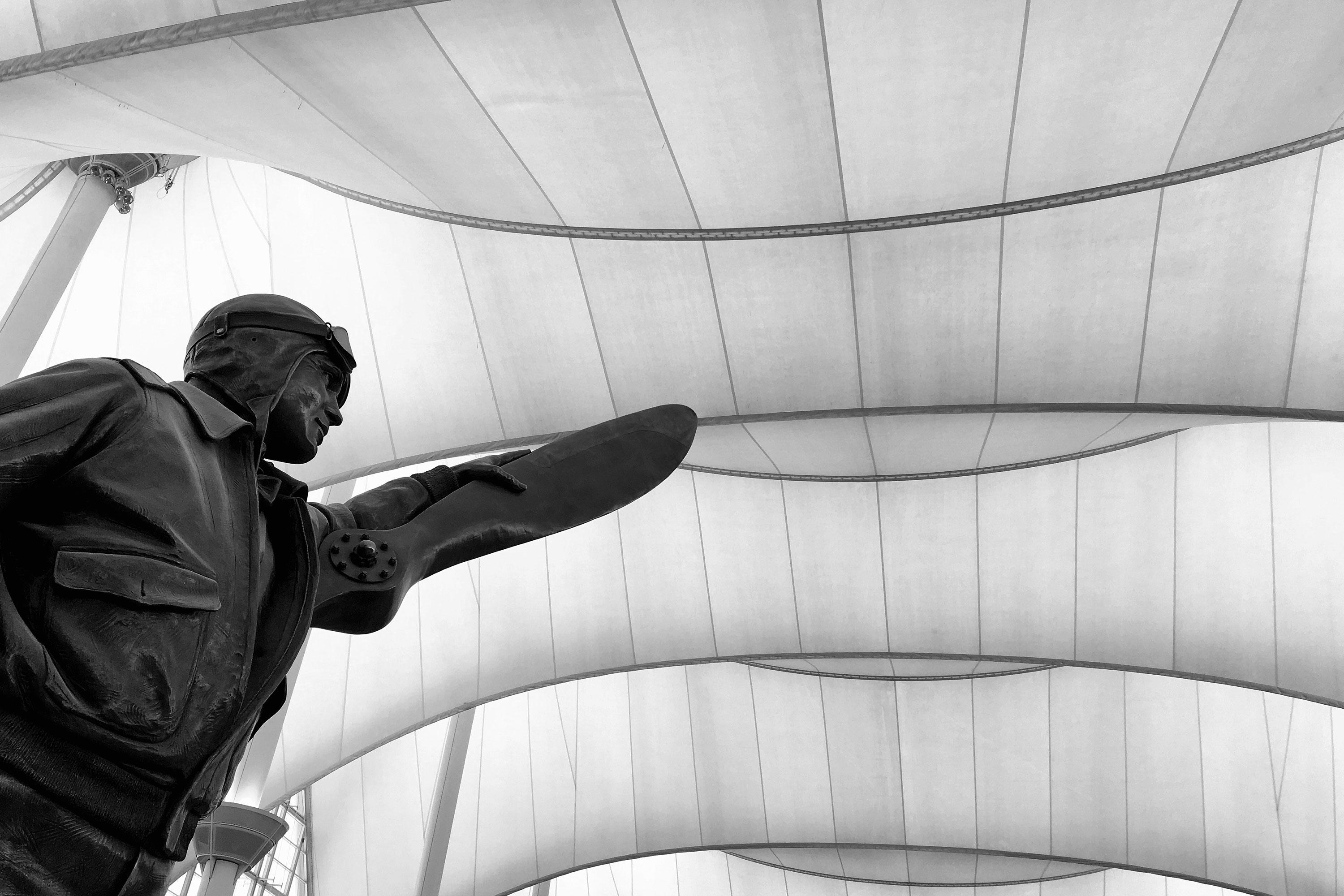

The remodel of Denver International Airport’s great hall could be delayed more than three years, drawing out the inconvenience for travelers.
Companies behind the project attribute the delay to structural issues with the old concrete that was used in the airport’s initial construction and design changes requested by the airport.
That revelation came in a report released Friday by Great Hall Partners, a consortium of companies designing and building the new interior. The group — which includes Ferrovial Airports, Saunders Construction and JLC Infrastructure — is redoing the security lines and retail inside the great hall. The work was initially scheduled to conclude in 2021. Now Great Hall Partners said they expect to finish in 2024.
CBS 4 was first to report the delay and cost figures.
“Of course we are disappointed and frustrated,” Denver Mayor Michael Hancock said. “We are doing everything possible to ensure the safety of the airport, and working hard to continue to keep the project moving so that we can keep our airport one of the best in the world.”
Airport officials echoed that in a statement to CPR, adding: “We are in confidential negotiations to work through these issues and expect to know more about schedule and budget implications, if any, later this summer.”
Internal documents show that Great Hall Partners pegs the total additional costs at $311 million, 47 percent more than the original contract amount, CBS 4’s Brian Maass reported.
Taxpayers won’t pay the difference directly. The airport is owned by the city, but it is funded by airline fees and concession and parking revenues, and its finances are separate from the city budget. Still, the airport is among the top economic drivers for the metro region as well as the entire state, and significant cost overruns could cause a host of problems, including higher airline fees.
Conflicting Reports On Concrete
A major reason for the overruns was concern over aging concrete. In some tests, it proved to be weaker than expected in various locations, including the terminal’s main floor, which was built more than two decades ago. The concrete issues did not emerge until the new construction began.
The city contracted their own engineering firm to assess the concrete. That firm conducted tests and reviewed tests from other firms, and concluded “that the concrete is adequate to support proposed construction.” But the firm recommended additional testing.
It’s not clear to what extent the delays are due to the rounds of testing, or if there’s a disagreement between the airport and Great Hall Partners over whether the concrete can withstand the construction activities.
A spokesperson for the airport didn’t immediately respond to a request for clarification.
A spokesperson for Great Hall Partners said they don’t have any comment at this time.
Design Changes Add Costs and Delays
The mayor and airport staff have questioned other new costs and delays reported by Great Hall Partners. The city and contractor are at odds over impacts related to changes in the design that are adding more than $150 million to the price of the project. Those aspects include everything from restroom upgrades to new cables and pipes.
The airport admitted to making changes, but they claim that shouldn’t lead to significant delays.
“The Developer’s portrayal of change order impacts has been and continues to be one-sided and frustrating,” DIA officials said in a statement. “We will continue to hold the Developer to its obligations under the P3 contract.”
The project is a public-private partnership, a kind of contract called a P3. It was hailed by Hancock and others as the future of government contracting in Denver. The deal with Great Hall Partners was the first of its kind for the city, using public and private money to fund the construction. Private contractors will have the right to manage and collect revenue from retail stores in the hall for 34 years. It’s the largest single municipal contract in Denver and was put together in part by lobbyist Josh Hanfling, a close personal friend of the mayor.









